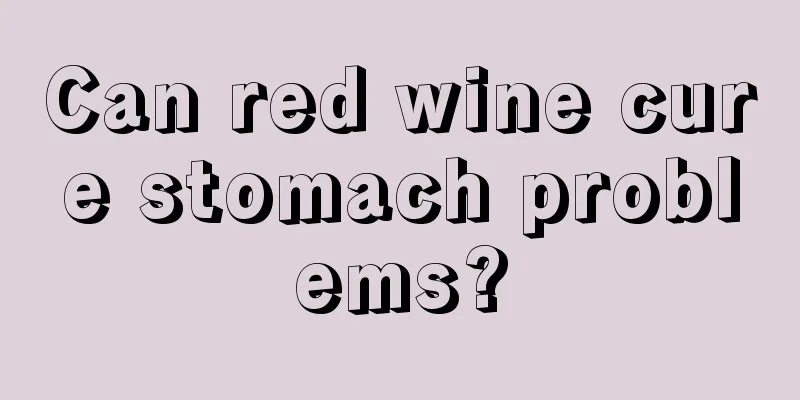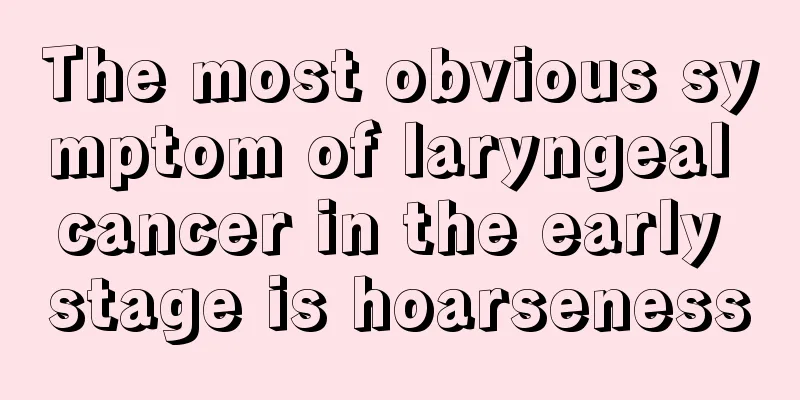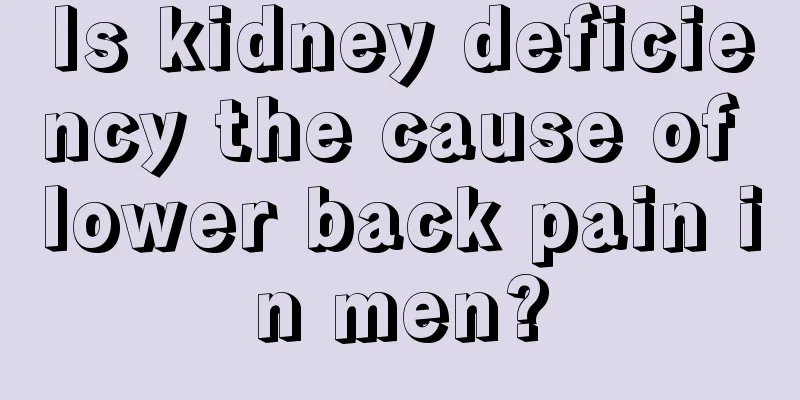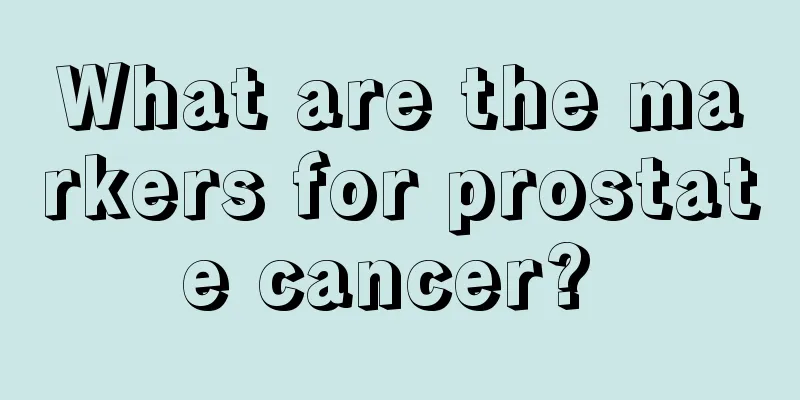Why is interventional treatment for liver cancer effective? Pay attention to these points in interventional treatment for liver cancer
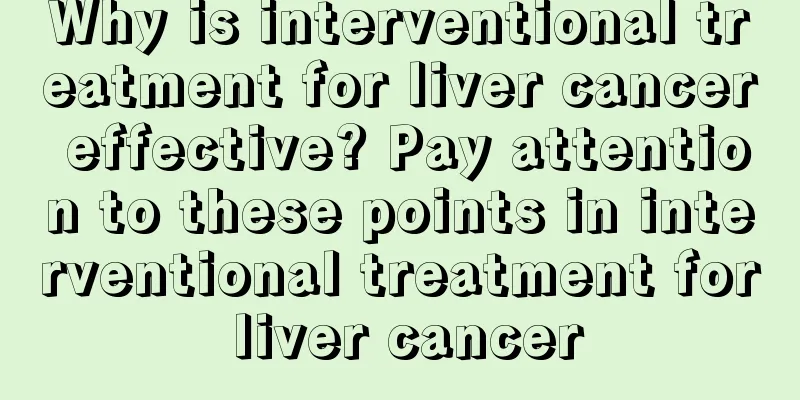
|
Interventional treatment of liver cancer is a method of diagnosis and treatment that involves inserting a special puncture needle or catheter into the tumor area of the liver under the guidance of X-ray television, CT, and B-ultrasound. Surgery is still the preferred treatment for liver cancer, but since most cases are in the middle or late stages when they are discovered, only 10% to 15% of patients have the opportunity to undergo surgery. Currently, interventional treatment among non-surgical treatments has become an effective treatment for liver cancer. Vascular interventional therapy for liver cancer In liver cancer, vascular interventional treatment is the most widely used clinically. It mainly includes selective hepatic artery perfusion therapy, selective hepatic artery embolization, and selective hepatic artery chemoembolization. The effectiveness of interventional treatment for liver cancer is determined by the blood supply characteristics of liver cancer. Its main physiological basis is that 20%-50% of the blood supply of normal liver cells comes from the hepatic artery, and 75%-85% comes from the portal vein. The blood supply of primary liver cancer comes from the hepatic artery 90%-95%, which provides an anatomical basis for vascular interventional treatment of liver cancer tumors. Interventional treatment of liver cancer is to allow drugs to directly enter liver cancer tissue through hepatic artery catheterization, increase local drug concentration, and kill cancer cells. In addition, some embolic substances such as iodized oil and gelatin sponge are used to block the blood supply artery of liver cancer, cut off its nutrition, and cause tumor tissue necrosis, thus achieving the purpose of treatment. The specific technical methods of the interventional treatment of liver cancer mentioned above are the same, that is, a small incision of about 3-5mm is punctured on the skin, a catheter is inserted from the artery to the liver cancer blood supply artery, and then the drug is administered through the catheter. The difference is that the drugs given are different. Selective hepatic arterial infusion (TAI) treatment is to infuse drugs into the artery through a catheter at a dose equal to or less than that of intravenous administration. This can increase the local drug concentration in the target cells and prolong the contact time between the drug and the lesion, and reduce the total drug dose in the body, so as to achieve the purpose of improving the efficacy and reducing side effects. Chemotherapy drugs are mainly commonly used. The efficacy of chemotherapy drugs is positively correlated with the effective blood concentration of the drug in the tumor site and the contact time between the drug and the tumor. In addition, Chinese medicine preparations and CIK cell adoptive immunotherapy can also be infused. Selective hepatic artery embolization (TAE) is to selectively inject embolic agents into tumor blood vessels and tumor blood supply arteries through a catheter to block the tumor blood supply and block the tumor vascular bed, thereby inhibiting tumor growth. This is equivalent to "starving" the tumor to death. Commonly used embolic agents include gelatin sponge, super-liquid iodized oil, sodium alginate microspheres, etc. Transcatheter arterial chemoembolization (TACE) is a method of administering both chemotherapy drugs and embolic agents through a catheter, destroying the tumor in two ways. Indications for interventional treatment of liver cancer According to the NCCN American Cancer Treatment Guidelines, interventional therapy has been recognized as the first choice for treatment of advanced liver cancer. Local targeted drug perfusion, tumor vascular embolization and argon-helium cryoablation are used to kill tumor cells in a concentrated manner, minimize tumor load (reduce the number and volume of malignant tumors), and combined with CIK cell adoptive immunotherapy and anti-tumor angiogenesis drugs, good clinical treatment effects have been achieved, effectively improving the quality of life of patients and prolonging their survival time. It can also reverse the liver cancer stage of some patients and convert unresectable liver cancer cases into resectable liver cancer cases. The following liver cancer patients can undergo liver cancer interventional treatment: (1) Primary or metastatic liver cancer that is considered unresectable for various reasons, or small liver cancer that the patient is unwilling to undergo surgery for. (2) As a preparation before surgery, interventional therapy can shrink liver cancer and make it easier to remove. In addition, intervention can reduce the spread and recurrence of the tumor. (3) Patients with incomplete liver cancer resection, postoperative recurrence, or failure of other treatment methods. (4) The liver cancer lesions do not rupture or bleed. (5) No serious damage to liver and kidney function. (6) No patients with severe jaundice and ascites. (7) The patient is in good general condition and has no serious bleeding diseases. Postoperative care for liver cancer interventional treatment Observation and care of patients after interventional treatment of liver cancer is an important link. After the operation, the patient's lower limb on the punctured side should be immobilized for 24 hours, and food and drink can be fasted for 6 to 12 hours for the convenience of observation; closely observe changes in the patient's breathing, blood pressure, pulse, etc.; whether there is bleeding from the incision; pay attention to the amount and color of urine; and receive fluid replacement and antibiotics to prevent infection for 3 to 5 days after the operation. Due to chemotherapy embolization, patients may experience nausea, vomiting, abdominal pain, fever, etc., which should be treated symptomatically in time and can improve after 1 week. After surgery, patients should have their liver function, kidney function, blood routine, etc. checked again, and pay attention to changes in various indicators. If problems are found, they should be actively dealt with. Although liver cancer is currently treated mainly through surgery and intervention, comprehensive treatment is more important. For example, interventional chemotherapy after liver cancer surgery can not only detect residual lesions, but also prevent postoperative recurrence and metastasis. Editor's Recommendation: All 7 types of liver cancer patients can undergo liver cancer interventional treatment Eight advantages of interventional treatment for liver cancer Don't forget to add Chinese medicine to interventional treatment of liver cancer |
<<: Is contact with liver cancer patients contagious? Beware of these liver cancer misunderstandings
>>: How should lung cancer patients eat? Recommended recipes for lung cancer patients
Recommend
Brief analysis of common diagnostic methods for latent lung cancer
Hidden lung cancer is a malignant tumor that caus...
How to treat a 4 cm pituitary tumor
How to treat a 4 cm pituitary tumor? A pituitary ...
Why does frequent bowel movements caused by colitis lead to colon cancer?
Why does frequent bowel movements caused by colit...
Small actions can bring great health, why don’t you take action?
For many people nowadays, they are busy with work...
The dangers of tooth extraction
Many people should have symptoms of toothache, an...
What are the Chinese patent medicine prescriptions for the treatment of prostate cancer
There are many Chinese patent medicines used in c...
What are the effects and functions of dagger powder
Bifen is also called Panax notoginseng. Although ...
Can sensorineural hearing loss be cured?
The health of the ears is very important for peop...
Chin injection to relax
Many people would have their chin reshaped in ord...
Why does it hurt under my right ear?
Many people experience pain under the right ear d...
What are the magical uses of essential oils
Essential oils are quite common in our beauty, sk...
Is the dull pain in the left upper abdomen for 2 months stomach cancer?
If no gastric lesions are found or their patholog...
Sweating makes clothes turn yellow
If you do not pay attention to personal hygiene r...
What causes testicular cancer?
There are really many diseases among men nowadays...
There is a swelling on the gum of the big tooth
Swollen and painful gums and bleeding gums are ve...

